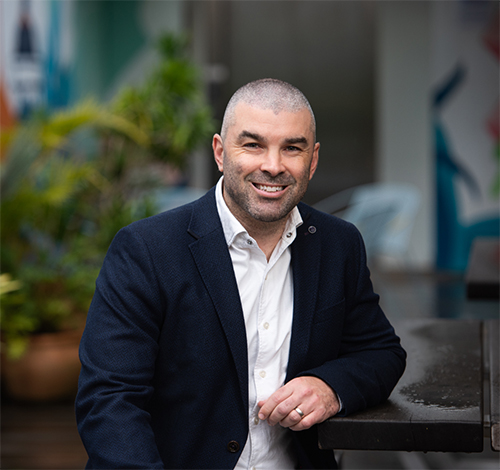The Director and Founder, Data Army, took tech over tourism – here’s his guide to how that’s gone so far.

What would you describe as your most memorable achievement?
Starting Data Army. Owning my own business wasn’t necessarily my long-term goal when I started doing some consultancy work as a side hustle back in 2016 but as I gained experience, demand for my services grew apace. I made the decision to go ‘all in’ in 2021. I came from a technical background and didn’t have a huge number of connections, so to have grown organically from one to 12 people as quickly as we have feels like a big deal. Becoming profitable in year one makes the achievement even more memorable.
What first made you think of a career in technology?
I wasn’t a geek when I was younger and I never really thought about going into ICT back then. My intention was to become a professional athlete, which was never going to happen! Towards the end of high school is when you start realising you have to pick a career and, for me, that moment came at the end of the nineties, when the dot.com boom was occurring. Career advisers were saying tourism or technology was the way to go and I went down the tech path. I wasn’t a stand-out student at university but I came into my own whenever we did assignments with external customers. Finding business applications for technology is still what drives me, two decades on.
What style of management philosophy do you employ with your current position?
Provide people with as much information and training as possible and then trust them to do their jobs. Data Army’s team is extremely talented, I don’t need to micromanage them. When working with cutting edge technologies, you need to be adapting constantly and that means it’s difficult, often counterproductive, to try to tell people to do things in a particular way. Projects tend to progress faster when you harness the collective experience of the group to work out the best way forward. It’s also more interesting for employees and makes for a nicer culture when everyone has a say in how things happen.
What do you think is the current hot technology talking point?
AI is the buzzword of the moment, even though it’s been around for years.
We’re still not seeing a lot of businesses doing anything productive with it and most AI projects are failing.
To me, the reason is obvious: you need to have a solid data foundation and that’s what many businesses are lacking. We’ve actually been here before, pre-Covid – a lot of companies began exploring AI and created a bit of a mess for themselves – but ChatGPT seems to have re-invigorated the cycle.
How do you deal with stress and unwind outside the office?
I still do a little bit of sport these days when I’m not injured but, generally, I’m living vicariously through my kids, who are seven and 10. They do Muay Thai, Brazilian jiu-jitsu and tennis and I love going to watch them on weekends. Gardening is my other outlet – it’s a good way to disconnect from technology for an hour or two and let your brain stop working for a while.
If you could go back and change one career decision, what would it be?
When I started doing consultancy work, I wasn’t a senior executive and I didn’t have a huge network of potential customers. Coming from a mid-level role, I did it the hard way because the decision to engage consultants isn’t usually made at that level; it happens at the level above. Ideally, you need to be engaging with those folk on a constant basis, to build strong relationships. Cold selling is difficult and you can have a long slog trying to build up trust so if I had my time again, I would probably stay in a corporate role a bit longer and develop a broader network.
What do you currently identify as the major areas of investment in your industry?
Data platforms are really big right now.
Businesses are looking for providers that can supply all the tools in one less complicated platform, so their people can spend time focusing on business outcomes. They don’t want them spending forever just trying to make technologies work.
What are the region specific challenges when implementing new technologies in APAC?
In Australia we’re not as adaptive as we could be and seem to be a couple of years behind when it comes to technology adoption. Partly because we don’t have the same volume of big businesses and partly because we’re a little more risk averse. People tend to follow the crowd and you may need to wait a while before an initial customer takes the plunge.
What changes to your job role have you seen in the last year and how do you see these developing in the next 12 months?
Our team has grown and I’ve started doing more traditional management work.
I try to stay involved with projects end to end, so customers have that continuity. I think we’ll see a bit more growth over the next year and that will mean me putting more systems in place to enable the team and optimise our productivity.
What advice would you offer to someone aspiring to obtain a C level position in your industry?
Stay close to the technology. I’ve seen people advance to the C-suite quickly and subsequently have difficulty understanding what their project teams are doing or are unsure whether they’re taking the right approach, because they are too disconnected from it all.
Work on your management and people skills but keep your hand in too because it’s going to make your job a lot easier.
The other thing is to trust your team. If you empower them enough, the majority of people will do the right thing and work hard.


